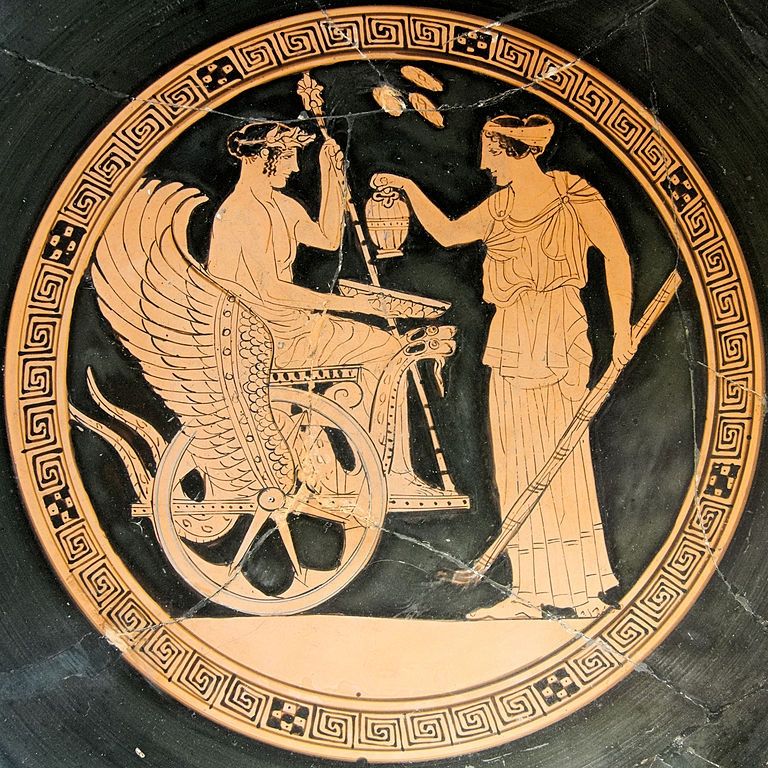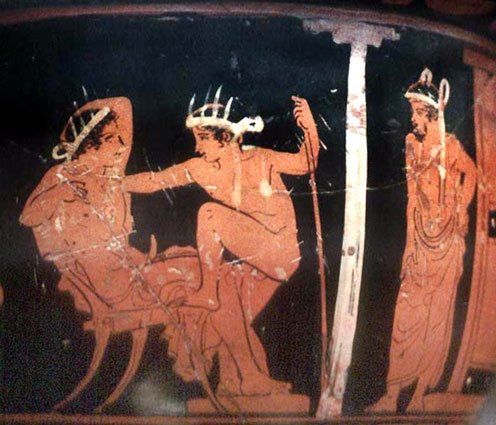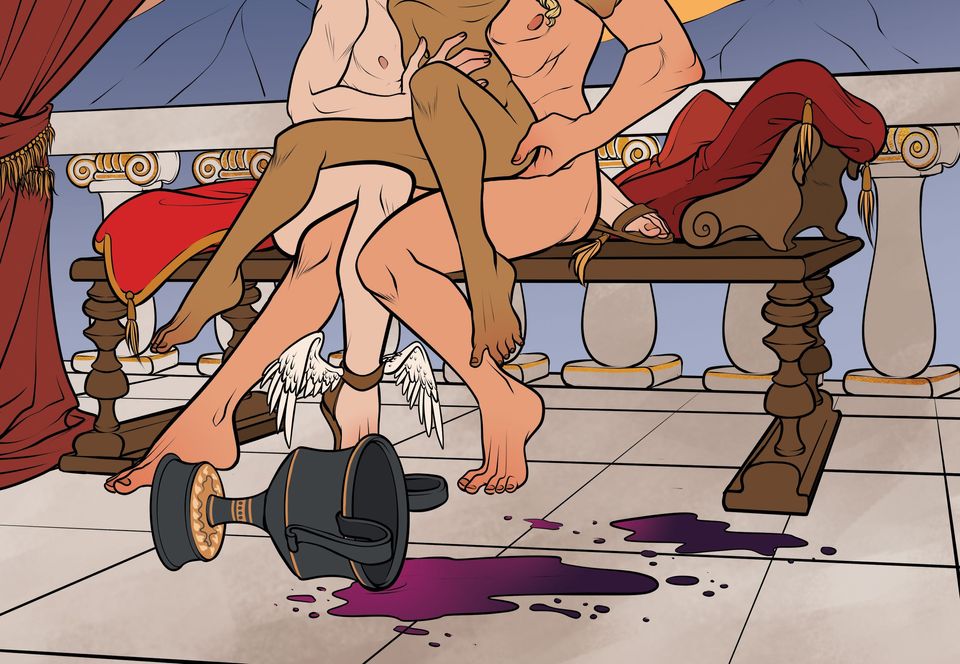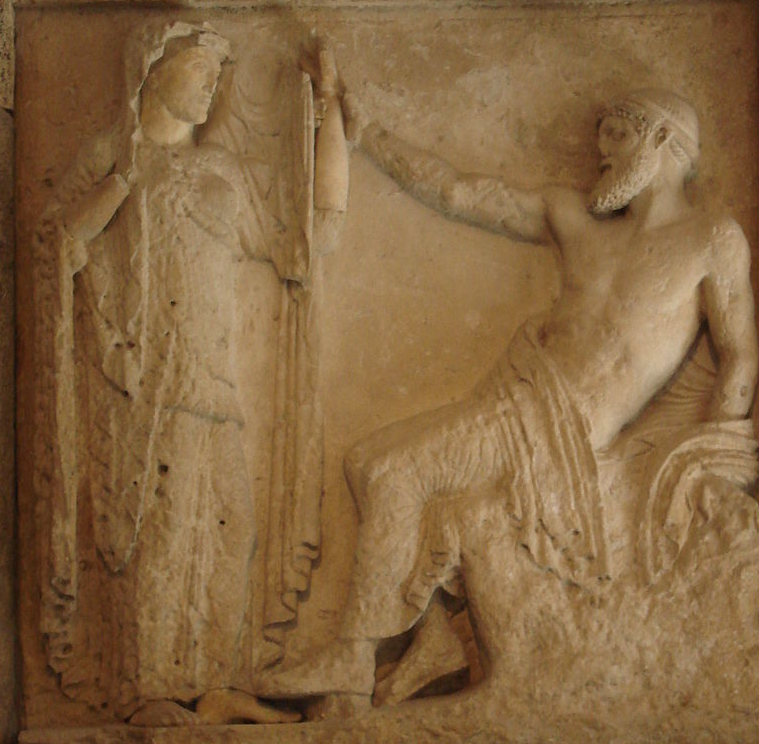Mythology Monday: Work

This week's #MythologyMonday theme is myths about work! Four deities spring to my mind when I think of work: Demeter, Hermes, Hephaistos, and Athena. Ancient Greece was an agricultural society with 80% of the population being involved in this kind of work. In Greek mythology, it was Demeter who invented agriculture but according to Diodorus Siculus she burnt all the grain out of grief and anger when her daughter Persephone vanished. While searching for Persephone, she was received by Eleusinian prince Triptolemos and his family and after she had reunited with Persephone, she taught him how to grow crops and provided him with a winged, serpent-drawn chariot to spread her gift across the earth. Triptolemus was the favourite of Demeter, and it is said he became the inventor of the plough. Pausanias even tells of a temple of Triptolemos at Eleusis.

Animal husbandry, a sign of power and wealth, was less well developed in ancient Greece. Goats and sheep were the most common livestock and the flocks were protected (and sometimes stolen) by Hermes. He cares for and increases the flocks and thus gives wealth.
Before Hermes was born, his brother Apollon was herder of the flocks. When he was sentenced to a year of servitude as a young god for killing Python, Apollon served the mortal Admetos as his herdsman and, fired with love for him, made all the cows bear twins. Apollon's exile and his relationship to Admetos is an interesting story in its own right. If you want, read my erotic retelling here. But then Hermes was born and built the first lyre and Apollon traded his cattle whip for the musical instrument, making Hermes the keeper of herds.
Hermes is also the god of trade and merchants, watching over the marketplace in the agora, a natural extension of his role since animals and their by-products were brought to the market to sell. Thievery and scams, of course, are also tools of the trade...
The artisans under the patronage of Hephaistos and Athena built their workshops nearby. Homer writes in the Odyssey:
"As when a man adds gold to a silver vessel, a craftsman taught by Hephaistos and Athene to master his art through all its range, so that everything that he makes is beautiful."
Hephaistos and Athena seem to share most of the crafts. Only metalurgy and smithing seems to be Hephaistos' domain alone, just as weaving is the sole sphere of Athena.
Plato writes the two of them also share a workshop where they practise their favourite arts:
He [Prometheus] entered by stealth into the common workshop of Athene and Hephaistos, in which they used to practise their favourite arts, and carried off Hephaistos' art of working by fire, and also the art of Athene, and gave them to man.
Plato, Protagoras 320c - 222a
May Athene Erganê, Athena the Worker, and Hephaistos Polytekhnês, Hephaestus of Many Crafts, bless your endeavours today. May Demeter Ploutodoteira give you wealth. And if you're like me, making a living with words, ask Hermes Eriounês, the bringer of good fortune and ready helper, because Hermes is also the god of language and writing. Thank you for supporting me and helping Hermes along - I'm so lucky to have you 💖
Sources
Hephaistos, the god of smiths and craftsmen
Relevant: Drawing of Athena sewing a leather dildo by Li Österberg



